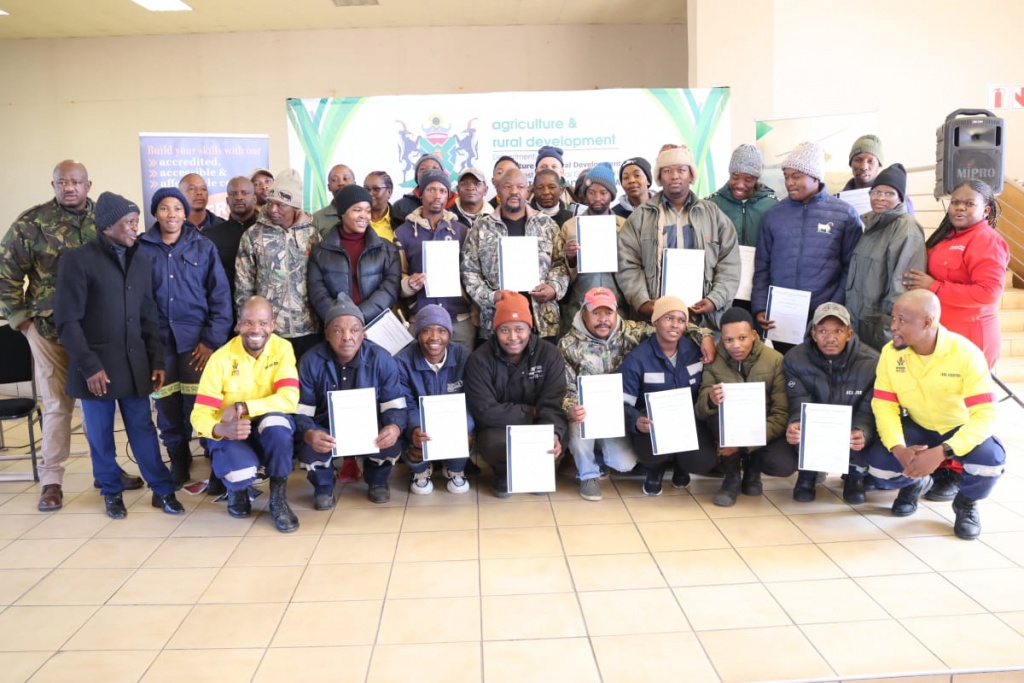The Department of Agriculture and Rural Development, in collaboration with Working on Fire (WOF), hosted a certification ceremony for sixty (60) farmers who completed a Basic Wildland Firefighting course, which is at NQF level one.
The efforts to equip farmers with the necessary skills to control wildfires and prevent potential property losses come as a mitigation strategy to avoid the consequences of the September 2023 wildfires that ravaged crops, grazing land and livestock.
The first group of thirty (30) trainees were formally awarded competence certificates at Ganyesa on Tuesday, 9 July while the other 30 received their certificates in Morokweng on Wednesday 10th. The two-day ceremony also sought to strengthen the existing relationship between the trained and untrained farmers, communities and the Department by sharing valuable information that can be put into practice during the wildfire season, which started in June and will end in October.
Working on Fire general manager, Nolvuyo Mashologu congratulated trainees for their persistence and emphasized the need for more wildfire awareness campaigns. “The four days of training were quite hectic, from theoretical lessons to practical exercises. We are happy to have trained committed individuals in this area as it is the most susceptible to wildfires compared to other areas in the province. Furthermore, encourage all farmers to join their local Fire Protection Associations (FPA) for increased awareness regarding fire risks in their area and
to receive first responses during fires”, she said.
Farmers were handed Personal Protective Equipment (PPE) and ten (10) fire beaters as a donation from WOF to utilize during fire emergencies at their respective farms. Moreover, the 60 farmers demonstrated some firefighting techniques using the fire beaters to effectively control
and extinguish fire in an open area such as a veld.
Speaking to two Ganyesa-based farmers, Molebogeng Pitorosi and Karabo Tokonyane, who were victims of last year’s wildfires, said they knew little about the basic techniques of putting out the fire before firefighting training. “Last year September we experienced wildfire which
resulted in us losing some parts of our farms and also we lost a fellow farmer who succumbed to smoke inhalation. So we’re grateful to the Department for offering us this training, and we’re glad to share the knowledge with other farmers and communities”, said Tokonyane.

